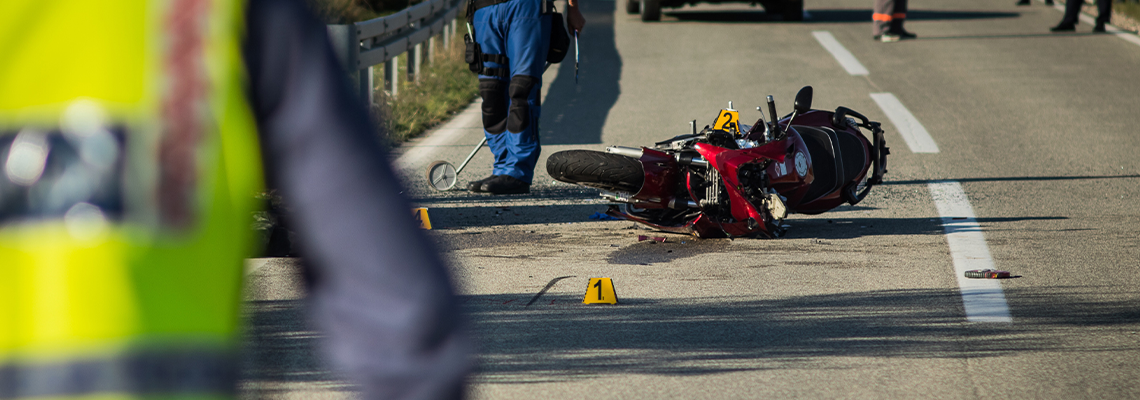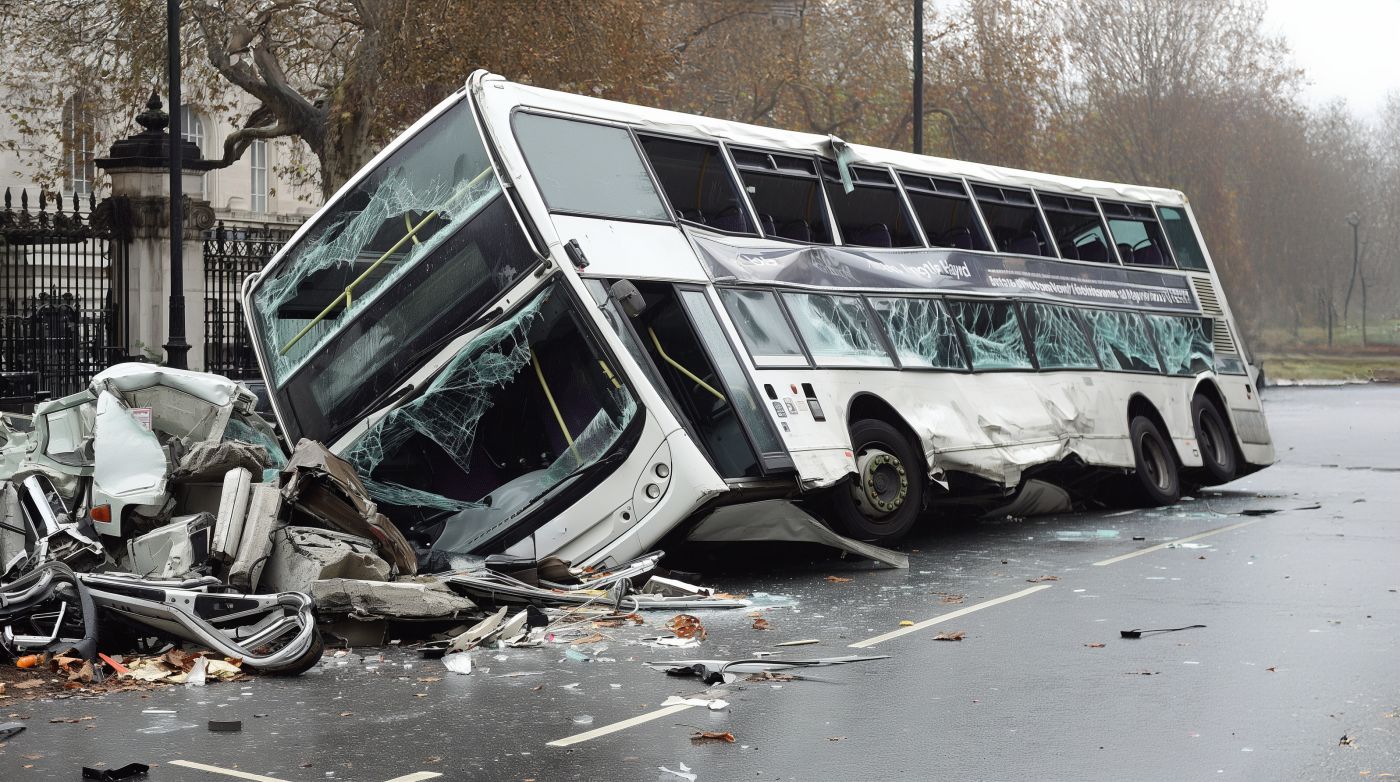Have you been in a car accident in Illinois? The moments after a collision can be confusing and stressful. Knowing what to do next can make a big difference in protecting your rights and ensuring a smoother path forward. This article outlines the key steps you should take when dealing with the police after a car accident in Illinois.
Learn the essential police procedure after a car accident. Our experienced car accident attorneys at The Law Office of Jack M. Shapiro can provide expert legal guidance to protect your rights. Contact us for advice today.
Importance of Contacting the Police Immediately After a Car Accident
Contacting the police after a car accident in Illinois is more than just a legal requirement. A police report serves as a critical record of the accident details, including witness statements and scene observations.
This report becomes vital evidence if you need to file an insurance claim. Don’t risk facing these challenges without a police report to back up your side of the story. Act promptly and call the police to ensure a clear and documented record of the accident.
General Police Procedure and What to Expect During an Investigation
When the police arrive after your accident, they’ll focus on securing the accident scene, gathering information, and determining fault. Expect them to:
Secure the scene: This might involve directing traffic, checking for hazards, and calling for medical attention if needed.
Gather information: The police will collect details from all parties involved, including driver’s licenses, insurance information, witness statements, and medical bills. Be prepared to answer questions about the accident clearly and concisely.
Investigate the accident: The officer will examine the scene, looking at the damage, skid marks, and debris. They may also take photos and measurements. Cooperate with their investigation and provide any details you can recall.
The officer will then use this information to determine fault in the accident. This is why having a clear and documented record is crucial.
Providing Accurate and Detailed Information to the Police
When speaking to the police after an accident occurs, focus on providing clear and accurate information about the accident. Stick to the facts you can remember and avoid speculation. Here are some tips:
Stay calm and collected. Take a deep breath and answer questions slowly and truthfully.
Be honest and accurate. Don’t try to embellish the story or place blame.
Focus on what you remember. If you’re unsure about something, say so.
Provide details. Describe the events leading up to the accident, the impact itself, and the position of the vehicles afterward.
Avoid assigning fault. Let the officer determine fault based on the evidence.
Don’t admit guilt. Phrases like “It’s my fault” can be used against you later.
The information you provide becomes part of the official police report. Taking a truthful and detailed approach protects your rights and ensures an accurate record of the accident.
Significance of Police Reports in Car Accident Cases
The police report generated after your accident is a critical piece of evidence. It serves as an unbiased record of the scene, events, and details reported by all involved parties. Here’s why the police report holds so much weight:
Evidence of the Accident
It documents the date, time, location, and weather conditions. This information can be crucial later, especially if memories fade or discrepancies arise.
Determination of Fault
The officer’s investigation and witness statements contribute to assigning fault in the accident. A well-documented report strengthens your personal injury lawsuit if the other party disputes blame.
Insurance Claims
Insurance companies rely heavily on police reports to assess the situation and determine liability. A clear crash report helps ensure a fair and accurate settlement.
Legal Proceedings
If your case goes to court, the police report becomes a key piece of evidence. It can support your version of events and strengthen your position.
Overall, a police report can be the key to a smoother insurance claim and a stronger legal case if needed.
How the Police Investigation Can Impact Insurance Claims and Legal Proceedings
The police investigation following a car crash holds significant sway over insurance claims and legal proceedings. Insurance companies and legal entities often lean on law enforcement’s findings to assess liability and determine the next steps.
If the investigation absolves you of fault, it bolsters your position against the other driver’s insurance company in negotiations or court. Conversely, if it assigns blame to you, it complicates your pursuit of compensation.
Evidence collected—witness statements, scene photos, and citations—can bolster or undermine your case. The investigation establishes a timeline and context for the accident, crucial for proving negligence or liability.
Thus, cooperating fully with the police is vital. Ensure accurate documentation of all relevant information to protect your rights and improve your chances of success in insurance claims and legal proceedings.
Common Mistakes to Avoid When Dealing with the Police After a Car Accident
Following a car accident, staying calm and collected can be difficult. But it’s crucial to avoid these common mistakes when interacting with the police:
Admitting fault: Don’t say things like “It’s my fault” or “I’m sorry.” Stick to the facts of what you remember.
Arguing with the other driver: This only escalates the situation. Let the police handle any disagreements.
Disappearing from the scene: Leaving the scene, even for a minor accident, is illegal and can hurt your case.
Offering too much information: Answer the officer’s questions honestly, but avoid rambling or speculating.
Disputing the police report: If you disagree with something in the report, politely point it out to the officer and ask for clarification. Don’t get argumentative.
Avoiding these common mistakes can help protect your rights and ensure a smoother process after a car accident.
Rights and Responsibilities of Drivers Involved in Accidents
Knowing your rights and responsibilities after a car accident is important.
Your Rights
Right to remain silent: You have the right to avoid saying anything that could be misconstrued as admitting fault.
Right to request medical attention: If you’re injured, you have the right to call for an ambulance or seek medical attention on your own.
Right to exchange information: You can request the names, driver’s licenses, and insurance information of all parties involved.
Right to legal representation: You have the right to consult with a seasoned car accident attorney to understand your options and protect your legal interests.
Your Responsibilities
Stop at the scene: Leaving the scene of an accident, even a minor one, is illegal.
Secure the scene: If possible, turn on hazard lights and take steps to prevent further accidents.
Help the injured: If you can safely do so, provide assistance to anyone injured in the accident.
Report the accident: You are typically required to report the accident to the police, especially if there are injuries or property damage.
Following these guidelines ensures you meet your legal obligations and protects your rights after a car accident.
How an Experienced Car Accident Lawyer Can Assist
After a car accident, there are several legal aspects to consider that can impact your rights and compensation. From understanding insurance policies to assessing liability, navigating these complexities can be daunting. This is where an experienced car accident lawyer can be invaluable.
An experienced car accident attorney can assist you in navigating the police procedure and subsequent legal proceedings. They can review the police report, gather additional evidence, and advocate on your behalf with the car insurance company and in court.
Get Expert Guidance
If you’ve been involved in a car accident, don’t navigate the legal process alone. Contact The Law Office of Jack M. Shapiro for personalized assistance in protecting your rights and pursuing the compensation you deserve. Let our experience protect your rights after a car accident.



